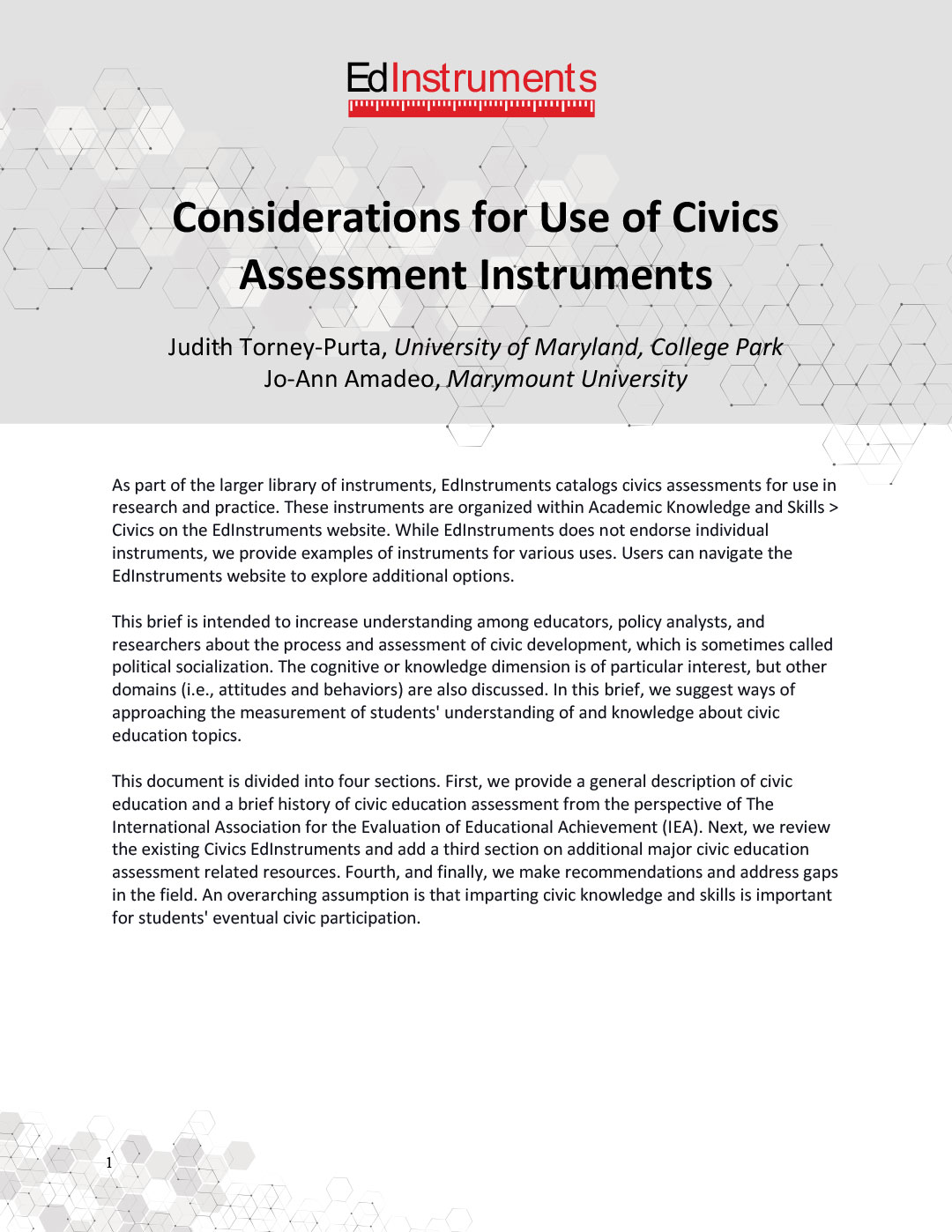Judith Torney-Purta, University of Maryland, College Park
Jo-Ann Amadeo, Marymount University
As part of the larger library of instruments, EdInstruments catalogs civics assessments for use in research and practice. These instruments are organized within Academic Knowledge and Skills > Civics on the EdInstruments website. While EdInstruments does not endorse individual instruments, we provide examples of instruments for various uses. Users can navigate the EdInstruments website to explore additional options.
This brief is intended to increase understanding among educators, policy analysts, and researchers about the process and assessment of civic development, which is sometimes called political socialization. The cognitive or knowledge dimension is of particular interest, but other domains (i.e., attitudes and behaviors) are also discussed. In this brief, we suggest ways of approaching the measurement of students' understanding of and knowledge about civic education topics.
This document is divided into four sections. First, we provide a general description of civic education and a brief history of civic education assessment from the perspective of The International Association for the Evaluation of Educational Achievement (IEA). Next, we review the existing Civics EdInstruments and add a third section on additional major civic education assessment related resources. Fourth, and finally, we make recommendations and address gaps in the field. An overarching assumption is that imparting civic knowledge and skills is important for students' eventual civic participation.
